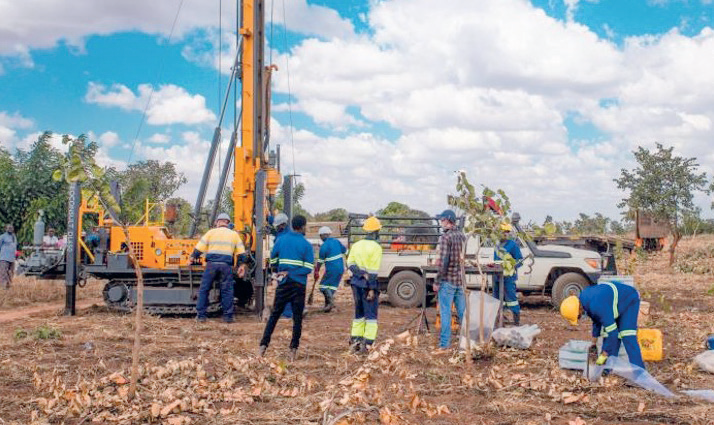Key Business Points
- Malawi is losing billions of kwacha through illegal mining, weak oversight, and outdated laws, despite its efforts to turn mining into a major export and revenue source.
- The country’s mining sector contributes only about one percent to GDP, despite its potential to ease the foreign exchange crisis, and experts warn that reforms must be implemented to unlock its value.
- Reforms are needed to address key discrepancies in data accuracy, revenue reporting, and production disclosure, and to strengthen enforcement and modernize laws to prevent illicit financial flows and ensure that the extractive industries are managed well.
The concerns about Malawi’s mining sector were raised during the launch of a mining governance assessment commissioned by the Natural Resource Justice Network (NRJN) with support from the United Kingdom Government. The review analyzed eight Extractive Industries Transparency Initiative (MWEITI) reports and found major gaps in data accuracy, revenue reporting, and production disclosure across mining, forestry, and oil and gas. Governance specialist Mavuto Bamusi presented the findings, stating that Malawi remains stuck in a "paradox of wealth and poverty," where vast mineral resources coexist with deepening economic hardship.
Bamusi noted that illegal mining has become widespread in areas such as Kasungu, Mangochi, and Balaka, weakening revenue collection and fuelling illicit financial flows. He also emphasized that mining currently contributes only about one percent to GDP, despite its potential to ease the foreign exchange crisis. To unlock the value of the mining sector, Bamusi stressed that Malawi must seal leakages, modernize laws, and strengthen enforcement. He said, "If the extractive industries are managed well, this economy can improve significantly. But until then, the promise of mining will remain just that — a promise."
Industry representatives agreed that reforms are needed, but stressed that some disputes stem from outdated land and compensation laws rather than corporate abuse. Sovereign Services Limited country manager and Malawi Chamber of Mines and Energy president Maxwell Kazako said compensation calculations are done by government under laws developed when land had little commercial value. He cited a rehabilitation trial at the Kasiya graphite project, where land was restored and crop yields reportedly improved, saying "That is the model every miner should follow."
The UK has reaffirmed its commitment to Malawi’s governance reforms, with British development adviser Natali Mitchell-Bennet acknowledging Malawi’s progress on compliance and revenue disclosure. She said the UK is partnering with the Malawi Anti-Corruption Country Support Strategy to address bottlenecks. Mining is one of the four major priority sectors alongside agriculture, tourism, and manufacturing, collectively called ATMM, to stimulate economic growth and achieve the Malawi 2063, the country’s long-term development plan. As Malawi continues to pursue its development goals, it is essential to address the challenges facing the mining sector and ensure that it contributes to the country’s economic growth and development, kukwera nthaka, or growing the economy.
What are your thoughts on this business development? Share your insights and remember to follow us on Facebook and Twitter for the latest Malawi business news and opportunities. Visit us daily for comprehensive coverage of Malawi’s business landscape.
- New Visions for Progress: Charting Malawi’s Next Generation Economic Growth - February 13, 2026
- Kanyika Niobium Mine Breaks Ground: Fuelling Malawi’s Business Growth - February 12, 2026
- RBM Tightens Grip: K145bn Treasury Decision Impacts Malawi’s Economic Landscape - February 11, 2026

